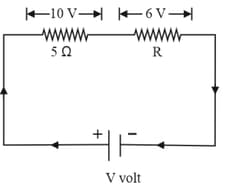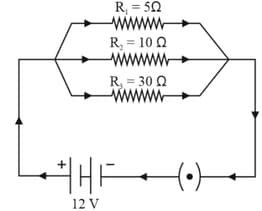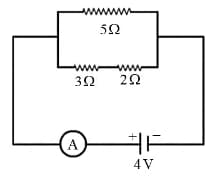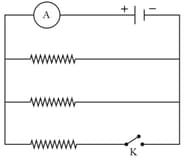Lakhmir Singh and Manjit Kaur Solutions for Chapter: Electricity, Exercise 23: Long Answer Type Questions
Lakhmir Singh Physics Solutions for Exercise - Lakhmir Singh and Manjit Kaur Solutions for Chapter: Electricity, Exercise 23: Long Answer Type Questions
Attempt the free practice questions on Chapter 1: Electricity, Exercise 23: Long Answer Type Questions with hints and solutions to strengthen your understanding. Science for Tenth Class Part - 1 Physics solutions are prepared by Experienced Embibe Experts.
Questions from Lakhmir Singh and Manjit Kaur Solutions for Chapter: Electricity, Exercise 23: Long Answer Type Questions with Hints & Solutions
With the help of a circuit diagram, deduce the equivalent resistance of two resistances connected in series.
Two resistances are connected in series as shown in the diagram:

(i) What is the current through the resistance?
(ii) What is the current through
(iii) What is the value of
(iv) What is the value of
With the help of a diagram, derive the formula for the resultant resistance of three resistors connected in series.
For the circuit shown in the diagram given below:

Calculate:
(i) the value of current through each resistor.
(ii) the total current in the circuit.
(iii) the total effective resistance of the circuit.
With the help of a circuit diagram, obtain the relation for the equivalent resistance of two resistances connected in parallel.
In the circuit diagram shown below, find:
(i) Total resistance.
(ii) Current shown by the ammeter

Explain with the help of a labelled circuit diagram, how you will find the resistance of a combination of three resistors of resistances and joined in parallel.
In the diagram shown below, the cell and the ammeter both have negligible resistance. The resistors are identical.

With the switch open, the ammeter reads . What will be the ammeter reading when the switch is closed?
